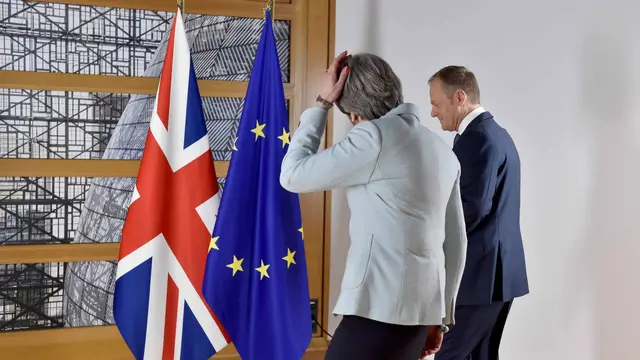With this weekend's U.S. government shutdown, experts analyzed such Washington drama's impact on President Donald Trump, arguing that it may help with his base, but could also hurt him with others.
"It will reinforce biases (that) the American government is dysfunctional," Brookings Institution senior fellow Darrell West said.
The weekend saw a temporary government shutdown, as Congress could not approve a spending bill. The shutdown was nearly over by Monday early evening.
The reasons that the shutdown may help Trump with his base are complex. Trump's base despises Congress, and views lawmakers - even Republican lawmakers - as part of the problem rather than the solution.
Many of Trump's supporters have been sidelined economically, living in rural areas and seeing their jobs disappear. They view Congress as having failed to stop this, and many view lawmakers on both sides of the isle to have contributed to the problem by making it easier for companies to ship jobs out of the United States.
Trump prides himself as being a Washington outsider. Despite being a billionaire, he has an unusual ability to connect with disenfranchised voters, especially white, working class men who believe they have been trampled on by Washington.
That means that when Congress squabbles, Trump's base blames Congress, and such Congressional drama gives Trump's supporters one more reason to back him, as the president has harshly rebuked Congressmen many times in his own party.
While Trump's base may not blame him for the shutdown, others could.
"If any of this harms Trump, I think it's the fact that he's absented himself from the drama that will do it," Christopher Galdieri, assistant professor at Saint Anselm College, noting that Trump has largely stayed out of the weekend's partisan drama.
"When you run for office on the basis of your tremendous deal-making ability, and then can't get a deal made, I think that has the potential to affect views of Trump even after the shutdown fades from the public's memory," Galdieri said.
Clay Ramsay is senior research associate at the Center for International Security Studies at the University of Maryland and a practitioner in the study of U.S. and international public opinion on global problems and domestic policy.
"The latest poll data all precede the current shutdown, but they show the initial state of play. Roughly half the public blame the Republicans and/or President Trump for the impasse," Ramsay said of the ongoing gridlock in Congress.
"Roughly a third of the public blame the Democrats," he said.
Dan Mahaffee, senior vice president and director of policy at the Center for the Study of Congress and the Presidency, said the response to the government shutdown has voters digging in, in terms of their partisan perspectives. Those who already support Trump will blame the Democrats, and vice versa.
(ASIA PACIFIC DAILY)
 简体中文
简体中文





